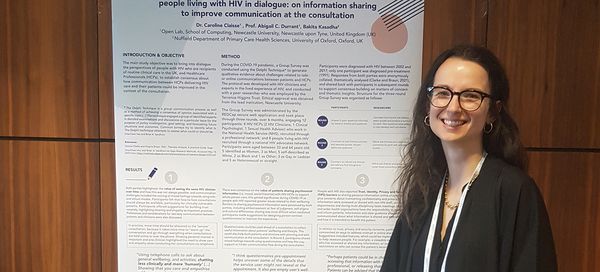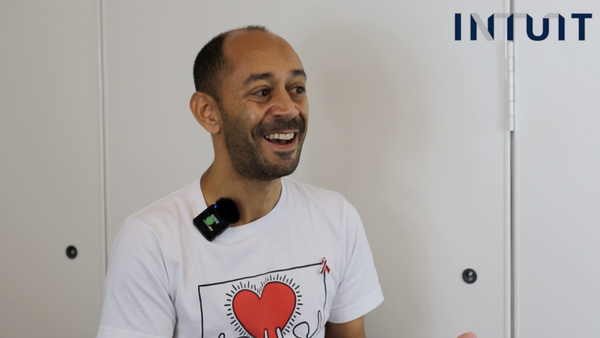News
Understanding Barriers and Facilitators to Sharing Patient-Generated Health Data when Living with Long-Term Conditions: A Narrative Review
Summary
The INTUIT team have just published a review paper in Frontiers in Public Health. The review was conducted by Emma Simpson, Richard Brown, Liz Sillence and Lynne Coventry at Northumbria University and analysed in collaboration with members of the wider INTUIT team.
The paper takes an in depth look at current literature to provide a broader perspective on the challenges faced by people living with long-term health conditions with respect to sharing patient-generated health data via technology. The review found that trust, identity, privacy and security issues present considerable barriers to the sharing of data via technology across multiple settings (i.e., sharing with clinical staff, public health surveillance, researchers, peer communities, friends, social networks and other third-party organizations). Stigma was also shown to impede the sharing of patient-generated health data across multiple settings, though most research in this area has centered on those living with HIV.
We present a short summary of our findings below and the paper is freely available online.

Why this topic is important
Patient-generated health data have the potential to improve the self-management of multiple health conditions and, when shared with healthcare providers, improve the provision of care. However, sharing PGData raises concerns around trust, identity, privacy and security (TIPS) and may have particular significance for those with potentially stigmatised conditions due to fears of discrimination or other harmful consequences. To realise the benefits of PGData we must first understand the barriers and facilitators to sharing using digital technology for people living with long-term health conditions. Therefore, understanding the role that both stigma and TIPS concerns play in the sharing of patient-generated data with others, by those living with long-term conditions, may help to promote effective data-sharing practices, potentially leading to improved delivery and self-management of care.
What we did
We conducted a narrative review of previous health literature addressing TIPS concerns and stigma in the sharing of PGData via digital technology. When examining the literature, we asked, 1) Do TIPS concerns present a barrier to the successful sharing of patient-generated data using digital technology by people living with long-term conditions, and 2) What is the impact of stigma on the sharing of patient-generated data via digital technology by those living with long-term conditions? We searched approximately 2,500 articles and based our findings on our analysis of 23 peer-reviewed articles most relevant to our research questions.
What we found
We found that ‘TIPS concerns’ clearly present barriers to the sharing of patient-generated data across multiple sharing contexts. The most common barriers to sharing were distrust in potential recipients of data, the need to manage one’s digital identity and broadly held privacy and security concerns around how data is used by others. Most studies focussed on clinical settings which suggests that more research is needed to understand other contexts, particularly sharing with third parties.
Stigma was also shown to impede the sharing of patient-generated data across all settings. Most studies focussed on stigma and sharing health data relevant to HIV, which suggests a need for further research to consider other conditions. Our review also highlighted the need to explore differences between conditions in experiences of stigma, and to consider how these differences interact with the influence that TIPS concerns have over sharing.
What comes next
We have used the findings of this narrative review to inform further INTUIT studies which we hope to publish in the coming months. To build on the insights drawn from existing literature, we have conducted an interview study to explore the barriers and facilitators to sharing patient-generated data experienced by those living with long-term conditions. We have also expanded our investigation of the role of TIPS and stigma in sharing health data by surveying people with a broad range of health conditions in the UK. We look forward to sharing our findings in the new year.


